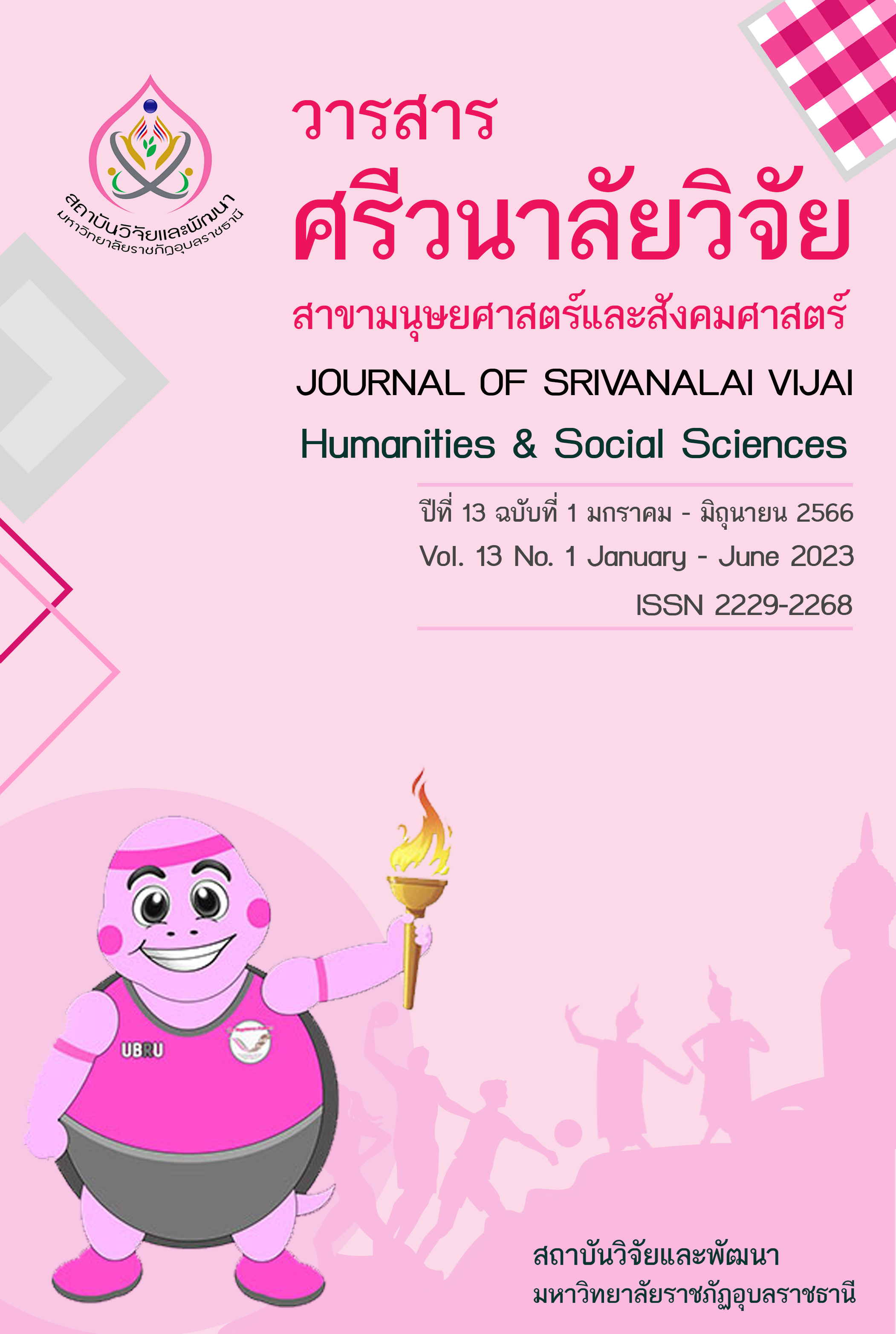เดี่ยวระนาดทุ้มในรูปแบบเพลงดำเนินทำนองทางพื้นและลูกล้อลูกขัด
Main Article Content
บทคัดย่อ
การวิจัยในครั้งนี้ผู้วิจัยดำเนินการศึกษารวบรวมข้อมูลจากเอกสารทางวิชาการ เอกสารงานวิจัย บทความ สื่อ สิ่งพิมพ์ต่างๆ ที่เกี่ยวข้องกับงานวิจัย สัมภาษณ์ผู้ทรงคุณวุฒิที่มีความรู้ความชำนาญด้านดนตรีไทย ถึงแนวคิดในการสร้างสรรค์ทางเดี่ยวระนาดทุ้ม และเสนอผลการวิจัยให้เห็นถึงกระบวนการการสร้างสรรค์ทางเดี่ยวด้วยวิธีพรรณนาวิเคราะห์ ดังนี้ 1.ศึกษาหลักและแนวคิดจากผู้เชี่ยวชาญที่เกี่ยวกับการสร้างสรรค์ทางเดี่ยวระนาดทุ้ม 2. หลักการและแนวคิดในการสร้างสรรค์ทางเดี่ยวระนาดทุ้มแบบเพลงดำเนินทำนองพื้นและลูกล้อลูกขัด 3. ตรวจสอบทำนองหลัก 4.การสร้างสรรค์ทางเดี่ยว โดยผลงานสร้างสรรค์มีรูปแบบของสำนวนประกอบด้วย สำนวนที่ได้มาจากเพลงที่ได้รับความนิยมมาแล้ว สำนวนทางเดี่ยวที่มีสำนวนที่แสดงถึงตัวตนของผู้ประพันธ์ สำนวนทางเดี่ยวระนาดทุ้มที่มีทั้งสำนวนง่ายสำนวนที่ยาก สำนวนที่มีความโลดโผนแสดงถึงศักยภาพและความคล่องตัวของผู้บรรเลง สำนวนราบเรียบที่แสดงความผ่อนคลาย สำนวนที่มีลักษณะบุคลิก สำเนียง ตามสมัยนิยม สำนวนที่เล่นหยอกล้อกับจังหวะ สำนวนที่มีความซ่อนเร้นและคมคายมีจุดเด่น สำนวนที่กลุ่มเสียงไม่สัมพันธ์กับทำนองหลักแต่จะต้องตกลูกตกเสียงเดียวกัน สำนวนที่สร้างสรรค์ขึ้นใหม่ สำนวนที่เป็นสำเนียงภาษาตามลักษณะเพลง สำนวนที่นำรูปแบบสำนวนกลอนของระนาดทุ้มมาพลิกแพลงใช้ นำสำนวนที่มีอยู่ในเพลงอื่นนำมาพัฒนาโดยการเปลี่ยนเสียง เปลี่ยนลูกเล่นตามความเหมาะสม มีการเล่นกับจังหวะ เล่นกับทำนอง เป็นต้น
Article Details
เอกสารอ้างอิง
ณรงค์ชัย ปิฎกรัชต์. (2563). ทฤษฎีเพื่อการวิจัยและสารัตถะบทดนตรี. ลพบุรี : โรงพิมพ์นาฏดุริยางค์.
ไชยยะ ทางมีศรี. สัมภาษณ์. 7 มีนาคม 2564.
ดุษฎี มีป้อม. ผู้เชี่ยวชาญดนตรีไทย สถาบันบัณฑิตพัฒนศิลป์ กระทรวงวัฒนธรรม. สัมภาษณ์. 2564.
บุญสร้าง เรืองนนท์. สัมภาษณ์, 7 มีนาคม 2564.


